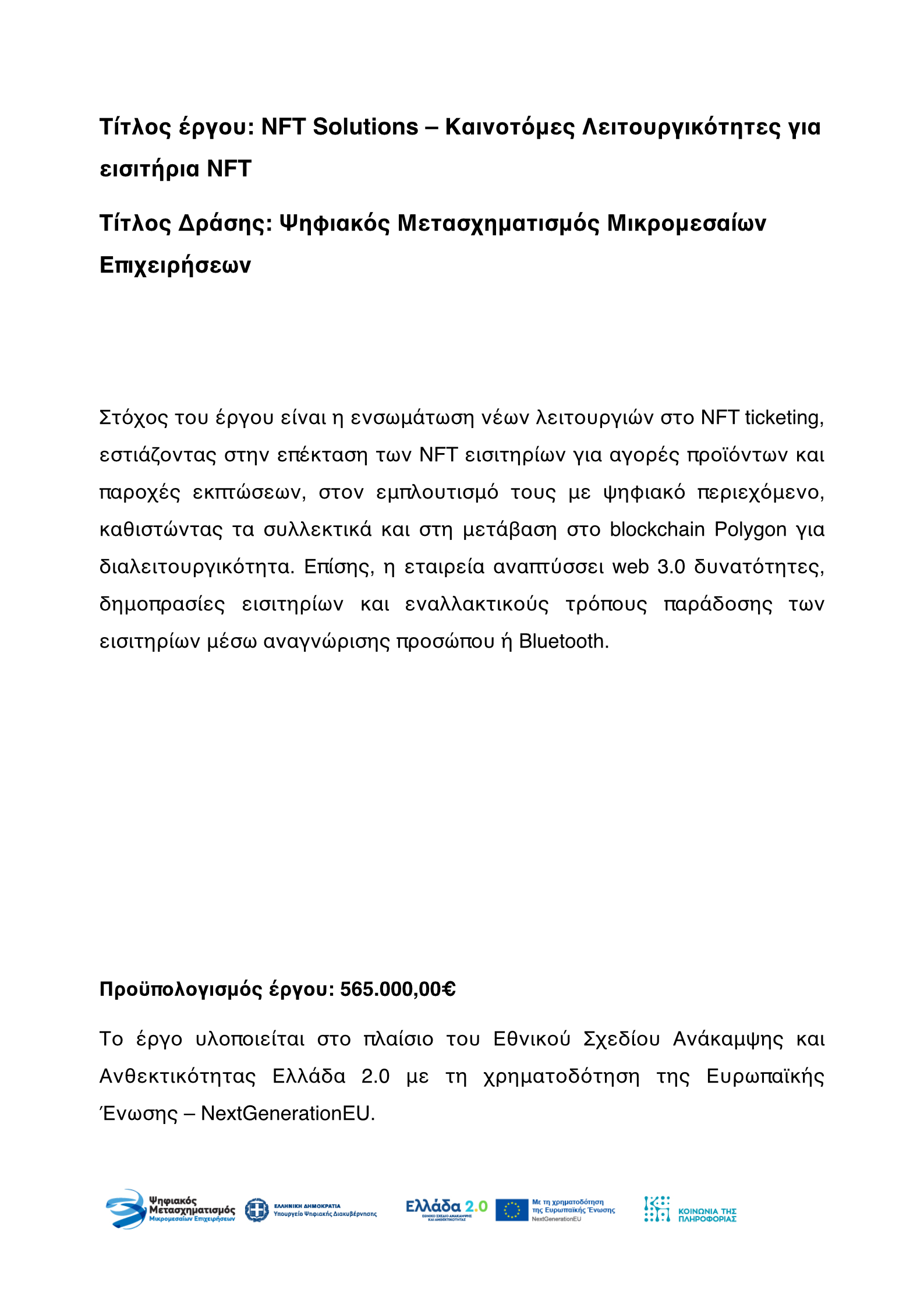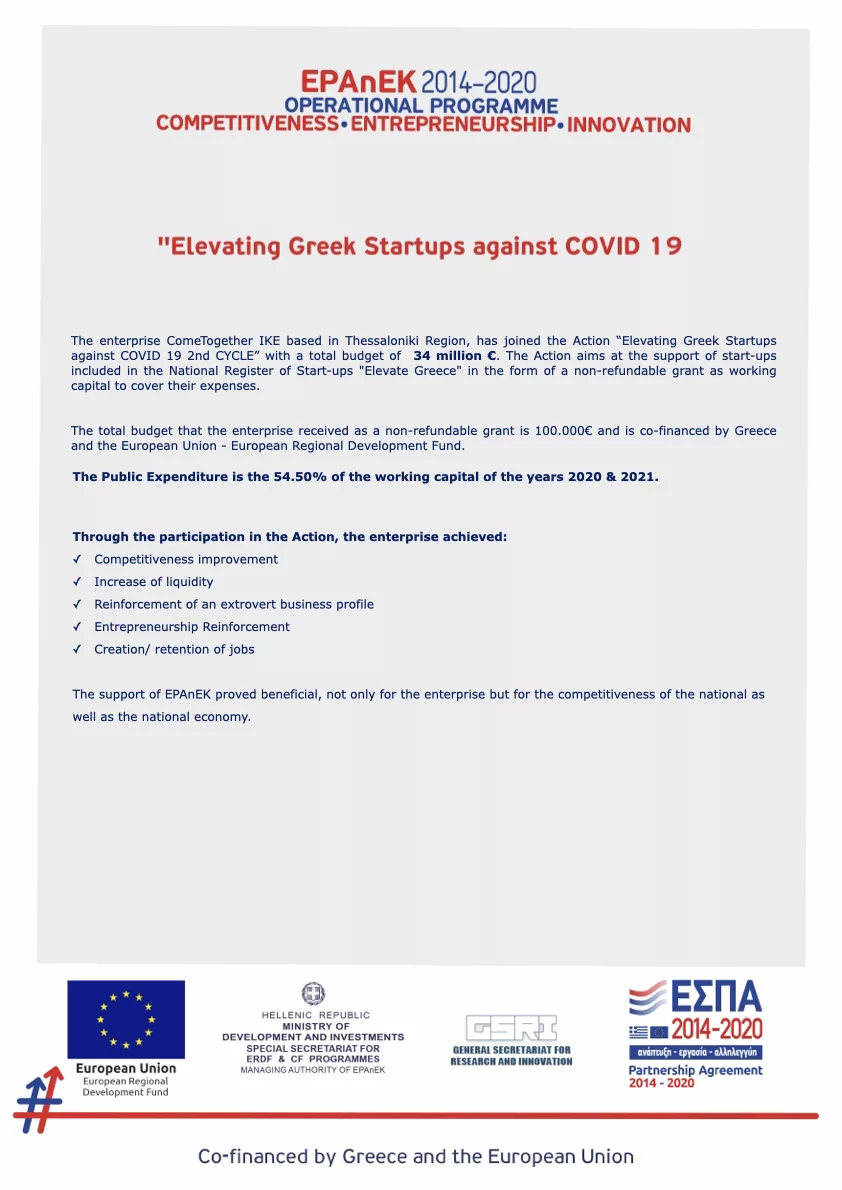The modern world is going digital at an unprecedented pace, and no industry remains untouched by the tidal wave of technological advancements. Among these, the ticketing sector for live events is undergoing a particularly interesting transformation, largely due to the emergence of NFTs (Non-Fungible Tokens). But how does this blockchain-based technology affect fans, event organizers, and the broader ecosystem? The answer lies in the unique attributes that make NFTs revolutionary, particularly when it comes to providing transparency, security, and fighting against ticket scalping.
How do NFT Event Tickets Work?
A New Paradigm in Ticketing
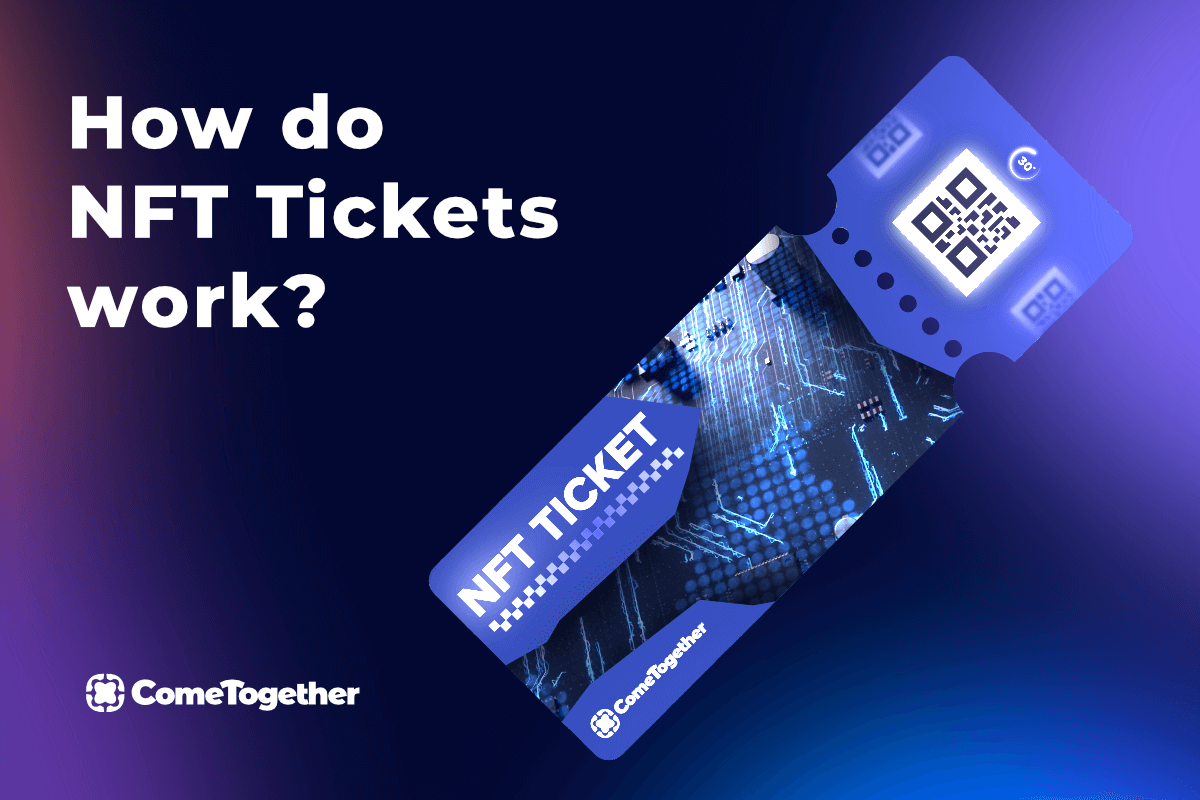
Table of contents:
- Introduction
- Digital transformation in ticketing
- The emergence of NFTs
- Understanding NFTs
- What is an NFT?
- Cryptocurrencies and collectible items
- The Impact of NFTs on Ticketing
- Security and authentication
- Traceability and lifecycle
- NFT Ticketing Platforms
- Companies pioneering NFT ticketing
- Key features and benefits
- Fighting Ticket Scalping with NFTs
- What is ticket scalping?
- How NFTs provide a solution through smart contracts
- Conclusion
- Summary of the impact of NFTs on ticketing
- Future outlook
- FAQs
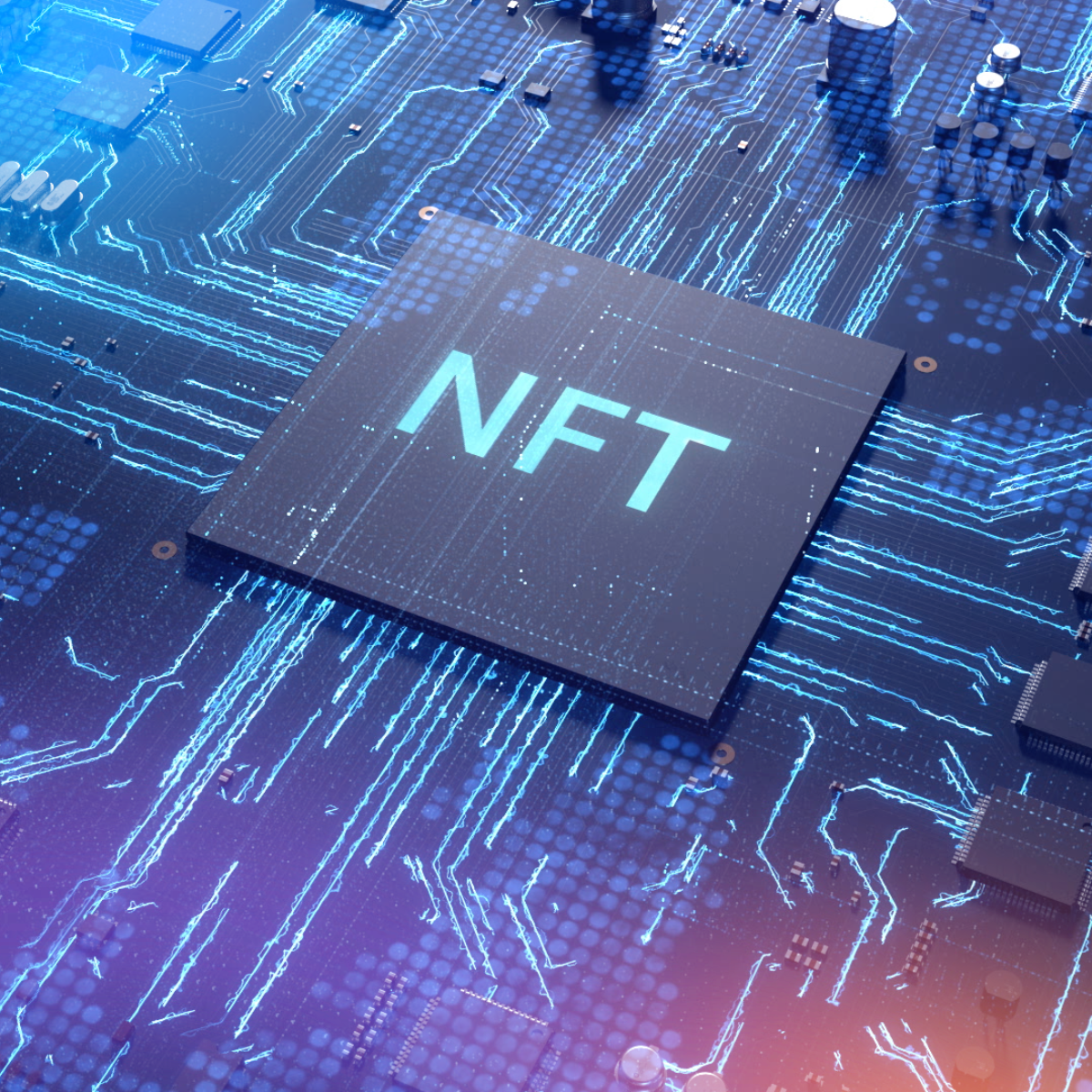
Understanding NFTs
NFTs, or Non-Fungible Tokens, are unique digital assets stored on a blockchain, which is a decentralized digital ledger. Unlike cryptocurrencies like Bitcoin or Ethereum, which are interchangeable and fungible, NFTs are distinct, offering digital scarcity and ownership. They are analogous to collectible items like football trading cards; the ownership of the card is not physical but represented by a unique digital token on the blockchain.
The Impact of NFTs on Ticketing
Why should the ticketing industry care about NFTs? Firstly, the unique, non-interchangeable nature of each NFT provides a robust shield against duplication and fraud. Each NFT-based ticket comes with a distinct identifier that authenticates its legitimacy, ensuring that the holder of this token is the genuine ticket owner.
Secondly, blockchain technology allows full traceability of each ticket’s lifecycle. Each transaction, from the initial issuance to any subsequent transfers, is permanently recorded. This eliminates double spending and counterfeiting, issues that have long undermined the trustworthiness and efficiency of traditional ticketing systems.
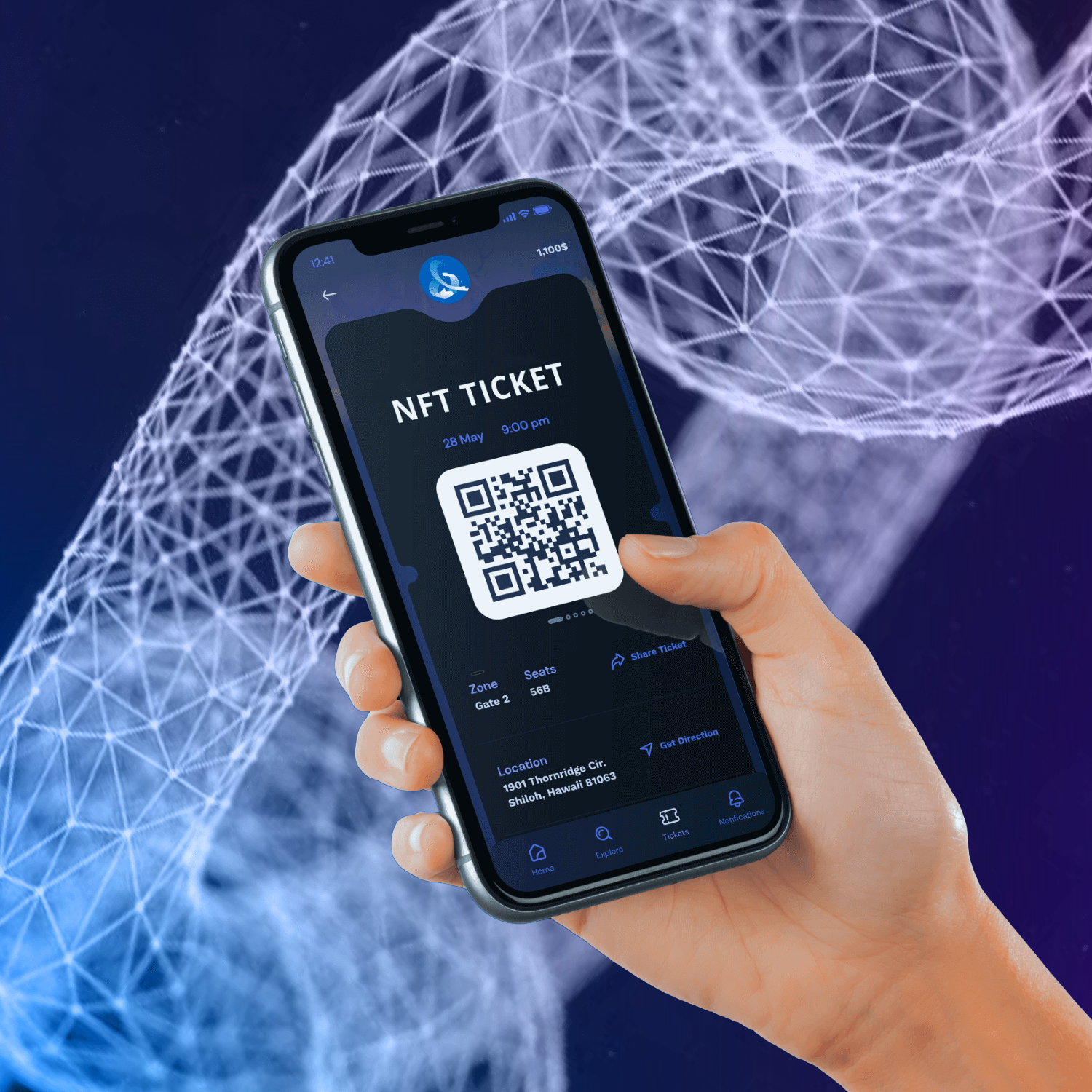
NFT Ticketing Platforms
Companies like ComeTogether are pioneering this space, offering platforms that use NFTs to issue and track event tickets. Not only does this safeguard the ticket’s authenticity, but it also offers protections against fraudulent activities like ticket scalping.

Fighting Ticket Scalping with NFTs
Ticket scalping has been a longstanding issue in the ticketing industry, often depriving genuine fans of the chance to see their favorite acts while enabling scalpers to profit significantly from inflated prices. The adoption of NFTs provides an innovative solution to this problem through the use of smart contracts. These are programmable contracts that can be coded to return a share of any secondary ticket sales back to the event organizers or even the artists. This way, the secondary ticket market can exist without the exploitative prices set by scalpers, ensuring a more equitable distribution of tickets at fair prices.
Conclusion
The arrival of NFTs in the ticketing sector signifies more than just a technological upgrade; it represents a paradigm shift that tackles multiple challenges at once. With enhanced security features, the promise of traceability, and a solid strategy to counteract ticket scalping, NFT ticketing platforms are poised to redefine the way we think about attending live events.
While the technology is still relatively new and subject to ongoing development, it holds immense potential to bring about transparency, security, and fairness to an industry in desperate need of innovation. As NFT ticketing continues to gain traction, it’s becoming increasingly clear that this is not just a passing trend but a groundbreaking change that promises to shape the future of event ticketing.
FAQs
What is an NFT?
NFT stands for Non-Fungible Token. Unlike cryptocurrencies like Bitcoin or Ethereum, which are fungible and can be exchanged on a one-to-one basis, NFTs are unique digital assets that can’t be swapped like-for-like. They are usually stored on a blockchain, ensuring their uniqueness and ownership.
How do NFTs relate to event ticketing?
NFTs offer a unique and secure way to issue event tickets. Each NFT-based ticket is distinct and cannot be duplicated, providing a secure, traceable, and fraud-resistant method of ticketing.
What is ticket scalping and how do NFTs combat it?
Ticket scalping refers to the practice of purchasing tickets for an event and reselling them at inflated prices. NFTs combat this issue by using smart contracts, which can be programmed to allocate a percentage of secondary sales back to the event organizers or the artists, thus reducing the incentive for scalping.
What are smart contracts?
Smart contracts are self-executing contracts with the terms of the agreement directly written into code. In the context of NFT-based ticketing, these contracts can be programmed to execute certain conditions like returning a portion of secondary sales to the event organizers.
What are the benefits of NFT tickets for fans?
NFT tickets provide fans with the assurance of authenticity and security. They also stand to benefit from a fairer secondary market, as NFT ticketing discourages ticket scalping.
What are the benefits of NFT tickets for event organizers?
Event organizers benefit from reduced fraud, full traceability of ticket lifecycle, and new revenue streams from secondary sales through smart contracts. This ensures better control over the ticketing process and more reliable data on ticket ownership and transfer.
Is the technology behind NFT ticketing secure?
Blockchain, the technology underpinning NFTs, is generally considered secure and resistant to hacking. It offers full transparency of transactions, making it easier to spot any fraudulent activities.
Is NFT ticketing widely adopted?
As of now, NFT ticketing is an emerging trend that is gaining traction. While it hasn’t completely replaced traditional ticketing methods, its adoption is increasing due to its various advantages such as security, traceability, and combating ticket scalping.
Where can I buy an NFT ticket?
NFT tickets are usually available on specialized platforms that have adopted this technology. Keep an eye out for event promotions specifying that NFT tickets are an option or consult the event’s official website for information on how to purchase them. Check out the ComeTogether Ticket Marketplace!
NFTs with utilities: ticketing, music, collectibles, memberships

